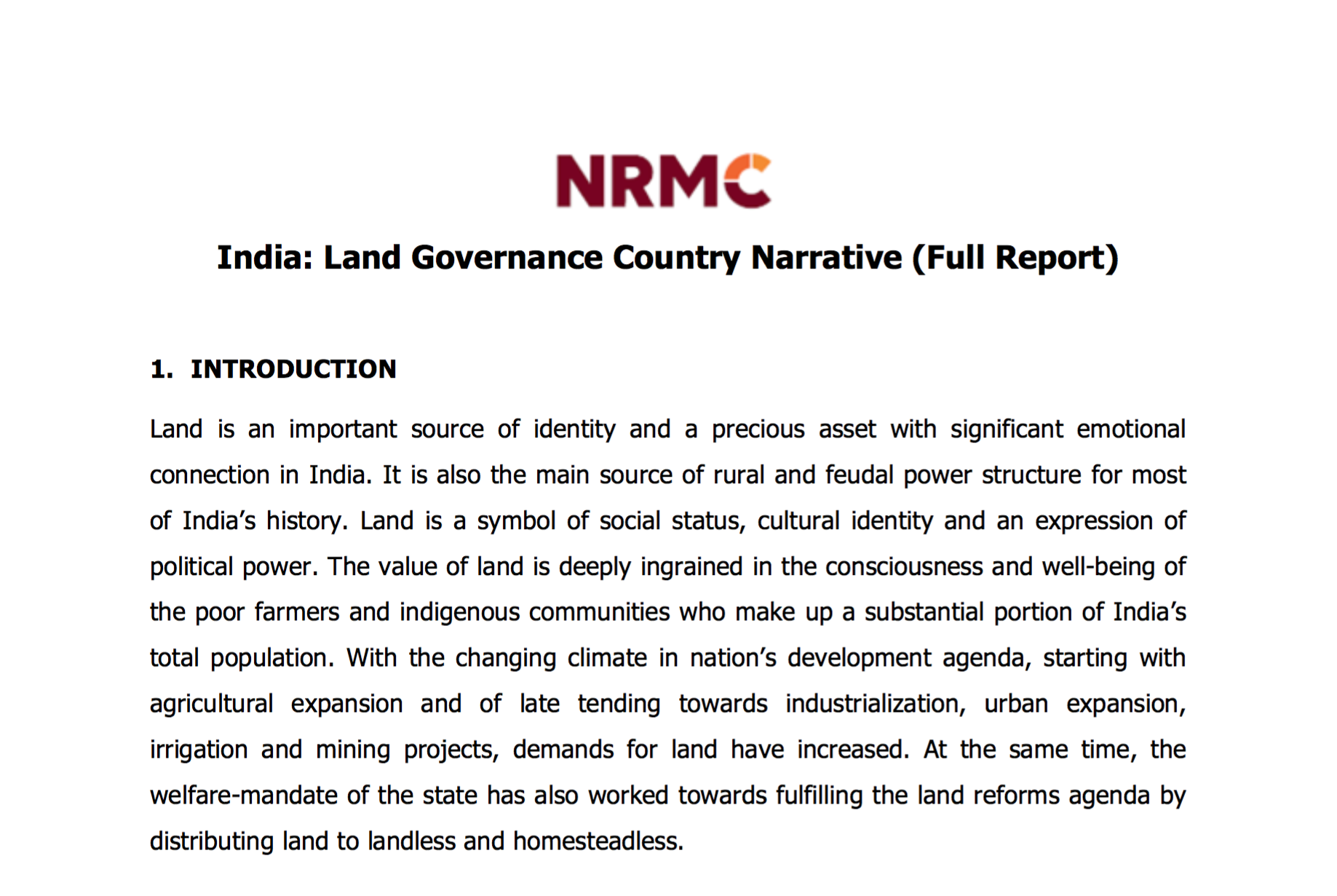India: Land Governance Country Narrative (Full Report)
Land is an important source of identity and a precious asset with significant emotional connection in India. It is also the main source of rural and feudal power structure for most of India’s history. Land is a symbol of social status, cultural identity and an expression of political power. The value of land is deeply ingrained in the consciousness and well-being of the poor farmers and indigenous communities who make up a substantial portion of India’s total population.



